These are the best pregnancy safe deodorant brands. Brands that are free from hormone disruptors, parabens, aluminum, phthalates, and artificial fragrances, but still work really well to help you smell nice all day long.
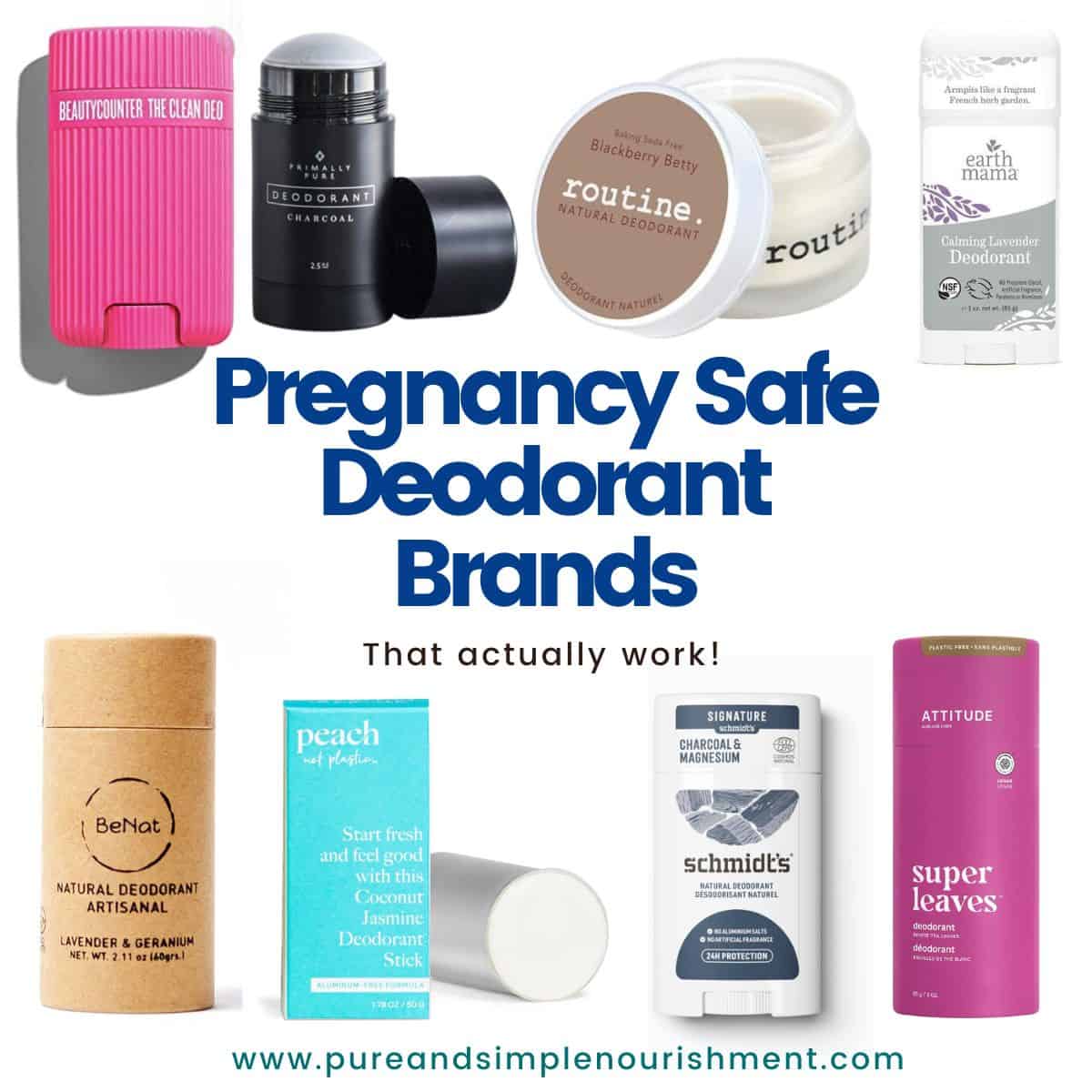
Disclaimer: some of the links in this post are affiliate links where if you purchase the product through that link I make a small commission. This does not cost you anything extra and helps me keep this website running.
Table of Contents
Why choose a non-toxic deodorant?
There are a lot of changes that happen to your body when pregnant. The hormone shifts that happen during pregnancy can cause some women to sweat more than usual. Some women also notice a change in the smell or odour of their sweat when pregnant. With all these changes, having a good smelling deodorant on hand can be very helpful. Deodorants can help keep you smelling good all day so that you never have to worry about your body odors or any excessive sweating.
However, when you are pregnant, there are some ingredients and active ingredients in personal care products that you need to stay away from for health and safety reasons.
There are some ingredients in regular deodorants that can be teratogenic or are unsafe in pregnancy, and there are other ingredients that can be hormone disruptors or even possibly carcinogens that you will want to avoid (even when you aren't pregnant). With all this in mind I thought it was important to share the ingredients you need to watch for and avoid in traditional deodorant, and the best pregnancy safe deodorants for you to choose from.
Before we get into the best deodorants for pregnancy, let's review some of the ingredients you want to watch for and avoid in deodorants (both when you are pregnant and when you aren't pregnant).
Ingredients to avoid in deodorant and why:
1. Aluminum
It's been shown that long term exposure to aluminum from deodorant can lead to accumulation of aluminum in breast tissue, which may increase your risk of breast cancer. There are a couple ways that aluminum can do this:
- Aluminum accumulation can lead to alterations in DNA which could contribute to cancer development.
- Aluminum can interfere with estrogen receptors, and estrogen has a well established role in the development of breast cancer.
However, whether or not aluminum in antiperspirants actually increases the risk of breast cancer is still not clear as there have been very few studies examining this issue directly. Of the studies that have been done, there have been conflicting results with some showing increased risk, and some not. The most recent study done in 2017, which was a case control study, did show an increased breast cancer risk in those using deodorant or antiperspirant.
However, since there are many other safer ingredients that can be used in deodorant instead of aluminum, why bother taking that risk if you don't need to, especially when you are pregnant?
When it comes to pregnancy, aluminum is especially concerning as aluminum is known to be toxic to all fetal developmental stages during pregnancy, even at low concentrations.
2. Parabens
Parabens are preservatives found in many skincare products to help increase their shelf life. Parabens have weak estrogenic and anti-androgenic activity, meaning that they are hormone disruptors or endocrine disruptors. Hormone disruptors can lead to many health problems. Parabens are linked to breast cancer, skin cancer, decreased sperm counts and infertility. That is why it's so important to choose a paraben free deodorant, especially when you are pregnant so your developing baby doesn't get exposed to these hormone disrupting chemicals.
3. Tricolsan
Triclosan is a common antibacterial chemical. Animal studies have shown triclosan to be an endocrine disruptor and other studies show that it can alter your microbiome.
Sadly triclosan is also bad for the environment because it doesn't break down and ends up in our water systems and is toxic to aquatic life. Fortunately, in 2017, triclosan was banned from soaps but it is still allowed in other products, including deodorant.
4. Phthalates
Another class of hormone disrupting chemicals, phthalates, are used to help scents and fragrances last longer. If you can still smell your personal care products (such as body lotion, deodorant, or shampoo) a few hours after using them that is a good sign there are phthalates in that product. Because phthalates are often used in the fragrances that make up a product, they are often not listed on the ingredient list, making it very hard for you to know if your deodorant or other products do contain phthalates.
Especially concerning for pregnant women, phthalates can cross the placenta and have been shown to impact fetal development, and phthalate exposure is associated with a shorter duration of pregnancy. So you'll want to be sure to avoid any deodorants with phthalates or the word "fragrance" in the ingredient list.
5. Fragrances
If you look at the ingredient list do you see the words “fragrance”, “parfume” or “scent”? If so that means there are fragrances in that deodorant. The problem with fragrances is that they are trade secrets. This means that a company doesn’t have to disclose any of the ingredients used to create that fragrance. Hidden in that term could be hundreds of chemicals that are harmful to your health, and you don’t get to know what any of them are. Fragrances can contain ingredients that are hormone disruptors (including parabens and phthalates) and they can also contain ingredients that are carcinogens, allergens, airway irritants, neurological-toxins and ingredients linked to infertility, hence why you want to avoid them.
6. Talc
Talc is used in the personal care industry for many reasons including to increase absorbency, as an anti-caking agent, bulking agent, and anti-slip agent. The problem with talc is that it can be contaminated with asbestos which is a known carcinogen and can cause respiratory toxicity.
7. PFAS
Everyday more and more consumer products are found to contain PFAS chemicals. I have written about their risks in detail before in other posts like the best non-toxic period underwear, the best non-toxic mascaras, the best non-toxic cookware and more.
In brief, PFAS (per- and polyfluoroalkyl substances) are a class of chemicals that provide non-stick, stain and water resistant coatings. These chemicals are very problematic to human health and the environment because they are persistent, meaning they build up and don’t go away. They resist degradation in the environment and they remain in our bodies for years, and sometimes even decades after exposure.
PFAS, even at low doses, can be harmful to health and are known to have a number of harmful effects on human health including but not limited to:
- They are endocrine disruptors (also known as hormone disruptors).
- Can lead to metabolic diseases including obesity and diabetes.
- Can contribute to cardiovascular disease (heart disease).
- Increase the risk of allergies and asthma in children.
- Decreases fertility in women.
- Can decrease sperm counts.
- Can increase the chances of miscarriages in pregnancy.
- Affects the growth, learning, and behaviour of infants and older children.
- Can cause thyroid disease.
- They can increase the risks of certain cancers including thyroid and kidney cancer.
- Increase cholesterol levels.
Recently, many deodorants have been found to contain PFAS, which is concerning because studies have shown that PFAS can be absorbed through the skin.
If you are looking for even more information on potentially harmful ingredients that can be in deodorants I recommend reading my review on deodorant health risks.
And in case you don't want to memorize all these ingredients you can download my free printable guide for the ingredients to avoid in skincare and cosmetic products:
Now that we've gone over the ingredients in deodorant that you'll want to avoid during pregnancy (and all the time really) let's go over the best pregnancy safe deodorant brands and the best non-toxic deodorants. Note that all of the deodorants in this review are aluminum-free deodorants made without any harsh chemicals or toxic chemicals. Any of these different options and different brands would be safe products to include as part of your daily routine when you are an expectant mother, breastfeeding, or trying to conceive.
9 Pregnancy Safe Deodorants
Primally Pure Deodorant
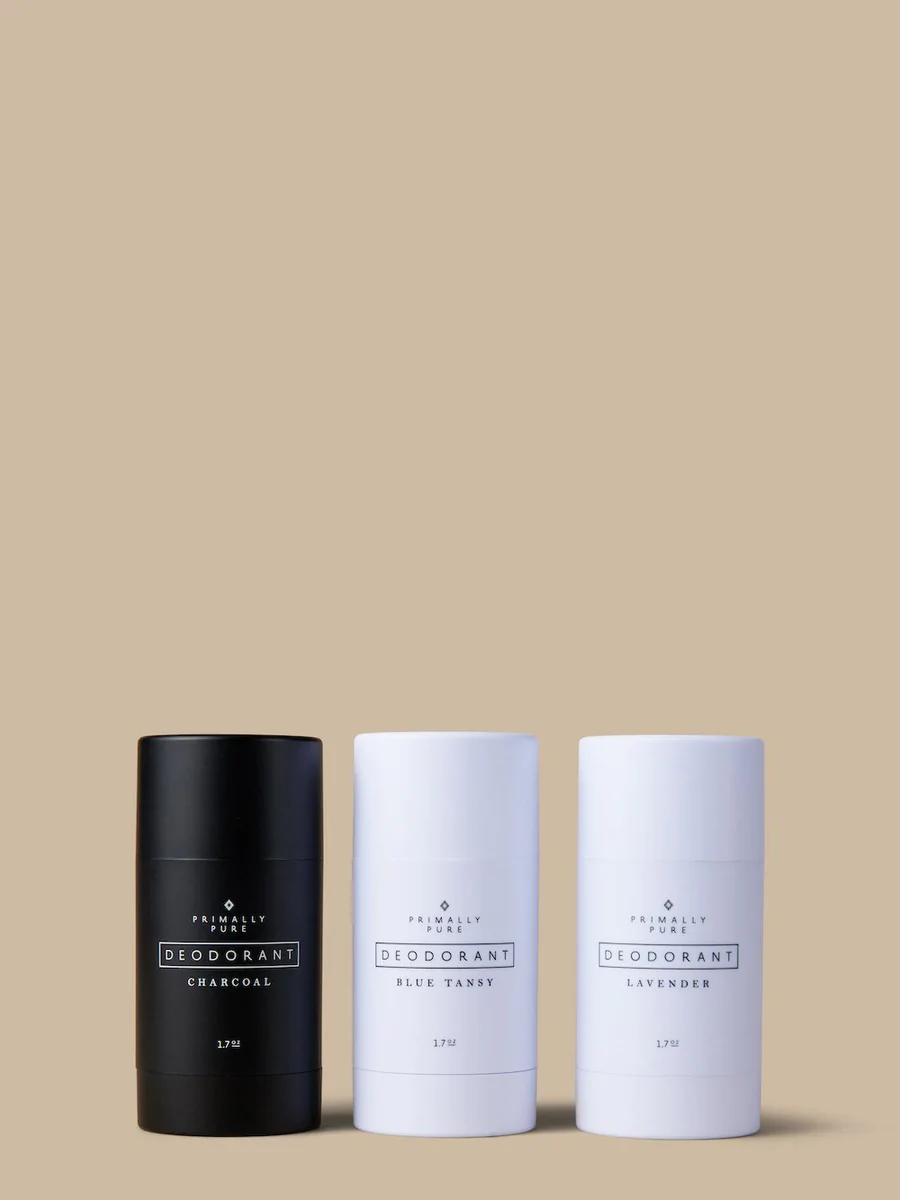
This is my personal favorite non-toxic deodorant that's safe for pregnancy and breast feeding. My favourite scents are the lavender and blue tansy. And if you are sensitive to baking soda or have sensitive skin, the baking soda free options are a great choice.
Features: It's made with all natural ingredients, is paraben free, and only scented with essential oils. Rated a 1 on the EWG skin deep database.
Size: 2.5 ounces or 1.7 ounces
Price: $16 for 1.7 oz or $22 for 2.5 oz (USD)
Why I love it:
- It works really well!
- Doesn't stain clothing.
- I love the variety of scent options.
- This deodorant has been independently tested for PFAS and found to be negative!
Cons:
- Is more expensive than some of the other deodorants in this review.
- No sustainable or refillable packaging.
- If you live in Canada like me the duty fees can be really high.
Routine Deodorant
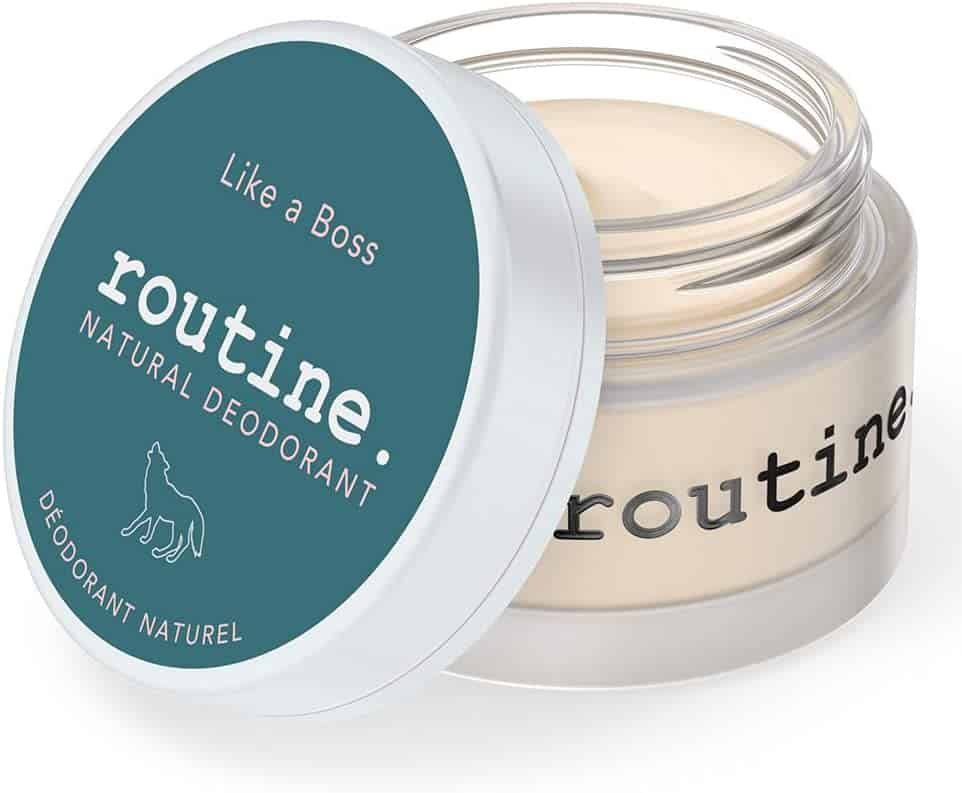
Routine is a brand that is locally produced in Calgary where I live, so of course, I had to include it here. It is an all-natural deodorant that comes in glass jars or sticks. In addition, you can get refills because these deodorants come in glass and jars, which cuts down on waste and is better for the environment. Routine deodorant is also free from parabens and other harmful chemicals and comes in many different scents. There is also a baking soda free option for those who are sensitive to baking soda.
Size: 50 grams (stick or jar)
Price: $28 - $42
Pros:
- The most scent options of any of the deodorants in this review.
- Sustainable and refillable packaging.
- Many positive reviews online. Despite that, this deodorant didn't work as well for me as the two previous deodorants, but every body is different so you would need to test it for yourself.
- Available for me to buy locally which helps cut down on transportation and shipping costs and environmental impact.
Cons:
- More expensive than some of the others in this review.
- I found the jar deodorant messy to work with and prefer the stick options.
Schmidt's Deodorant
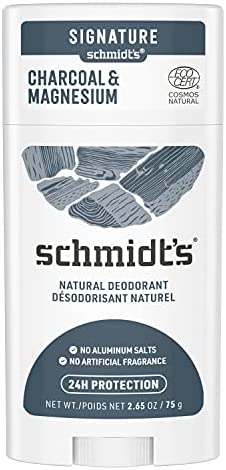
Schmidt’s is another very popular non toxic deodorant brand that is easily found in most drug stores and grocery stores. They were one of the first natural deodorant brands and have been making natural deodorant since 2010!
Schmidt’s deodorant is another deodorant stick that comes in many different scents and they also have a sensitive skin formula as well. They use essential oils to scent their deodorants meaning that they are free from synthetic fragrances and are a great clean beauty option and safe for pregnancy and breast feeding.
Features: Made with all natural ingredients and plant based ingredients. Vegan and cruelty free. Rated a 1 on the EWG skin deep database.
Size: 2.6 ounces/ 75 grams
Price: $9.99 USD
Pros:
- The most affordable option in this review.
- Easily found at drug stores and grocery stores.
Cons:
- I personally didn't find that this one worked as well for me, but it has many positive reviews online so it does work well for many others.
- No sustainable packaging.
- Can stain clothing.
Attitude Deodorant
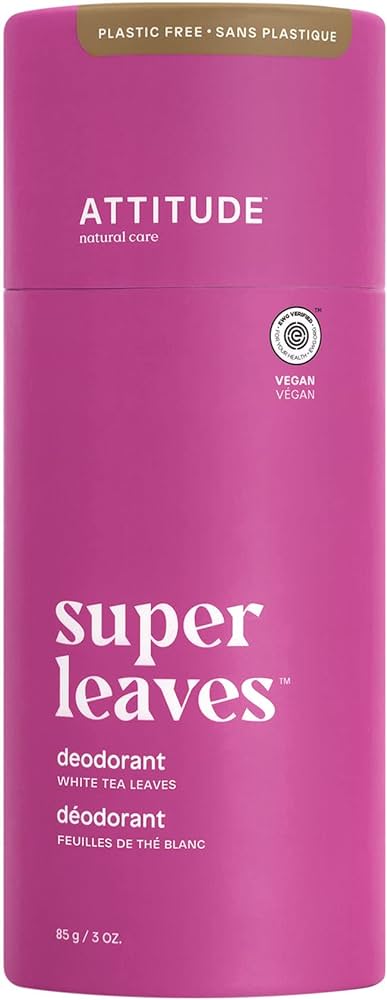
Attitude makes a variety of non-toxic and safe personal care products, including safe deodorants. Their deodorant is one of the most affordable clean deodorants on the market and Attitude products are easily found in drug stores and grocery stores and even at Walmart.
Features: EWG verified. Non-plastic packaging. Vegan. Dermatologist tested. Made with natural ingredients.
Size: 3 ounces
Price: $11.95 USD
Pros:
- It comes in a wide variety of scent options including unscented - my favorite scents are the Lemon Leaves and Tea Leaves.
- Sustainable and biodegradable packaging.
- One of the most affordable natural deodorants in this list.
- It spreads easily.
Cons:
- I found that it can stain clothing.
- The tube can be difficult to use and push up. Some people have even found the containers to get bent in the process (I did not find this personally).
BeNat All Natural Deodorant
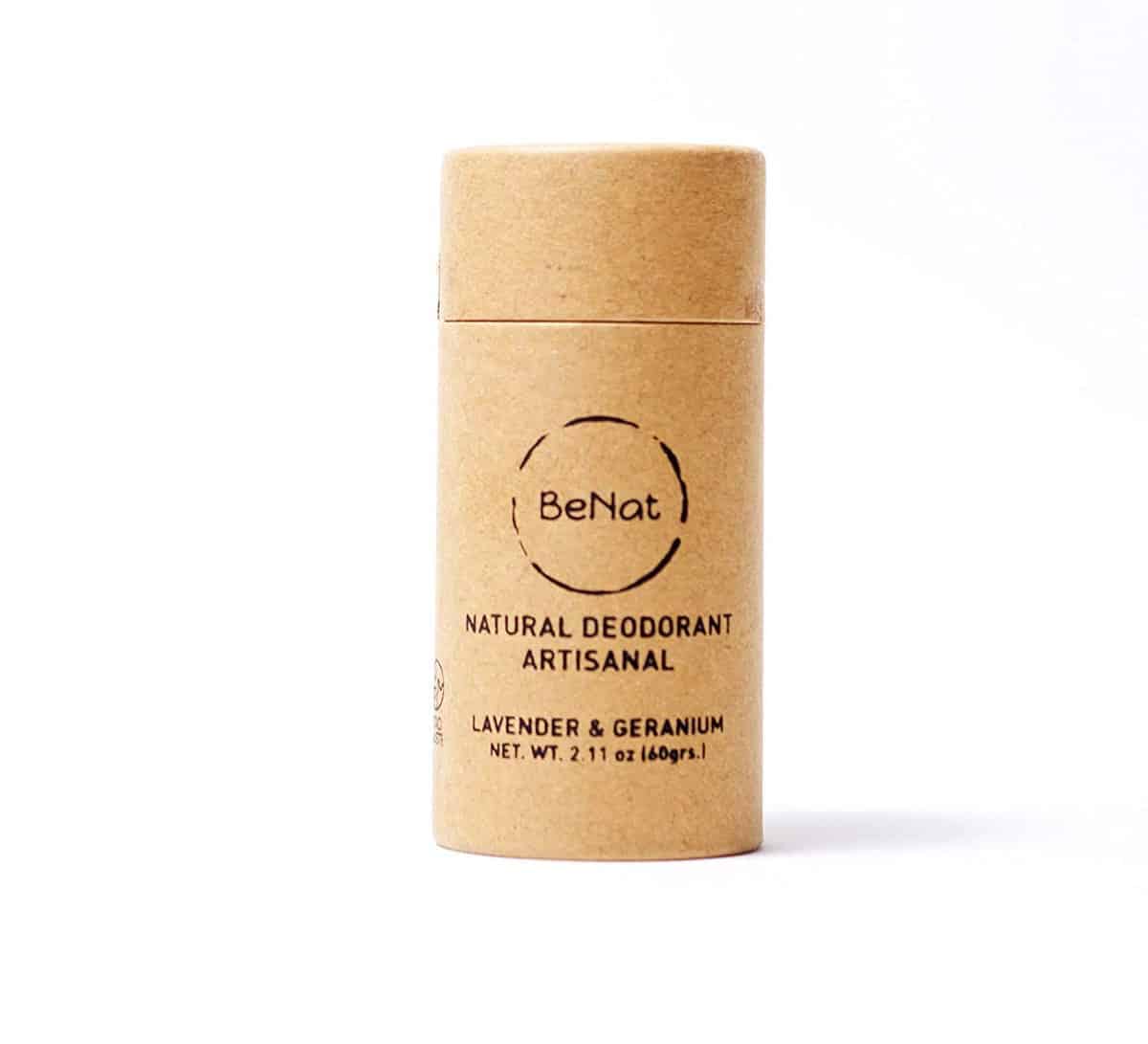
The BeNat All Natural Deodorant is a great clean deodorant option that is safe for breastfeeding and pregnancy. It is aluminum-free and plastic-free and made with all natural ingredients. It is formulated without parabens, phthalates, and talc. This deodorant is scented with essential oils and has long lasting odor protection.
Features: gluten free, cruelty free, eco-friendly and biodegradable.
Size: 3 ounces
Price: $12.99 USD
Pros:
- I love that it is eco-friendly and biodegradable.
- It's one of the most affordable natural deodorants on the market.
- It comes in a variety of scents - my favorite is the lavender and geranium option.
- They offer baking soda free formulas for those with sensitives or who experience irritation with baking soda.
- The small size makes it great for travelling.
Cons:
- Some people have complained about the deodorant giving them a rash. I did not experience this but it is something to be aware of.
- The push mechanisms on the tube does not work very well. It requires a lot of force to use and many people complained that it broke when they used it.
- The formula doesn't spread very easily so I found I had to rub it in after applying.
Earth Mama Deodorant
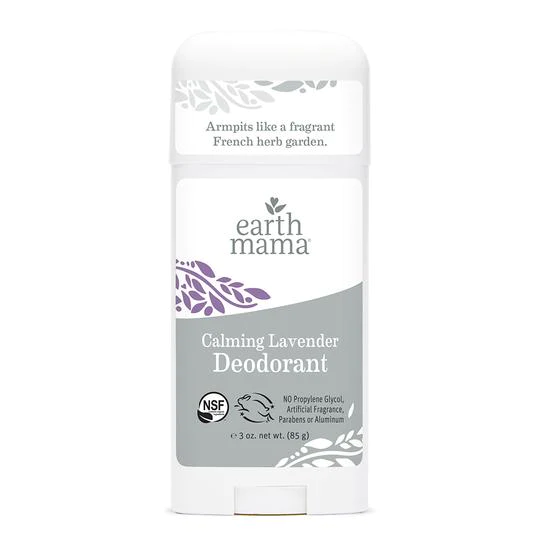
Earth Mama makes many great natural products including a clean deodorant that is safe for both pregnancy and breastfeeding. The Earth Mama deodorant is made with baking soda and magnesium yet is still great for those with sensitive skin. This deodorant stick is made with organic lavender, calendula and coconut oil, and is formulated especially for sensitive skin, pregnancy, and breastfeeding.
Features: dermatologist tested and cruelty-free. Rated a 1 on the EWG skin deep database.
Size: 2.65 ounces or 75 grams
Price: $12.99 USD
Pros:
- Comes in a variety of scent options - my favourites are the Calming Lavender and Bright Citrus.
- Made with Eco Smart packaging.
Cons:
- Some people who are sensitive to baking soda have experienced a rash with this deodorant (I did not personally).
- The deodorant is pretty solid so it takes some effort to apply it.
- The reviews for this deodorant are mixed - some people find it very effective, while others don't. I personally didn't find this deodorant to work as well as some of the others in this review.
Humble Deodorant
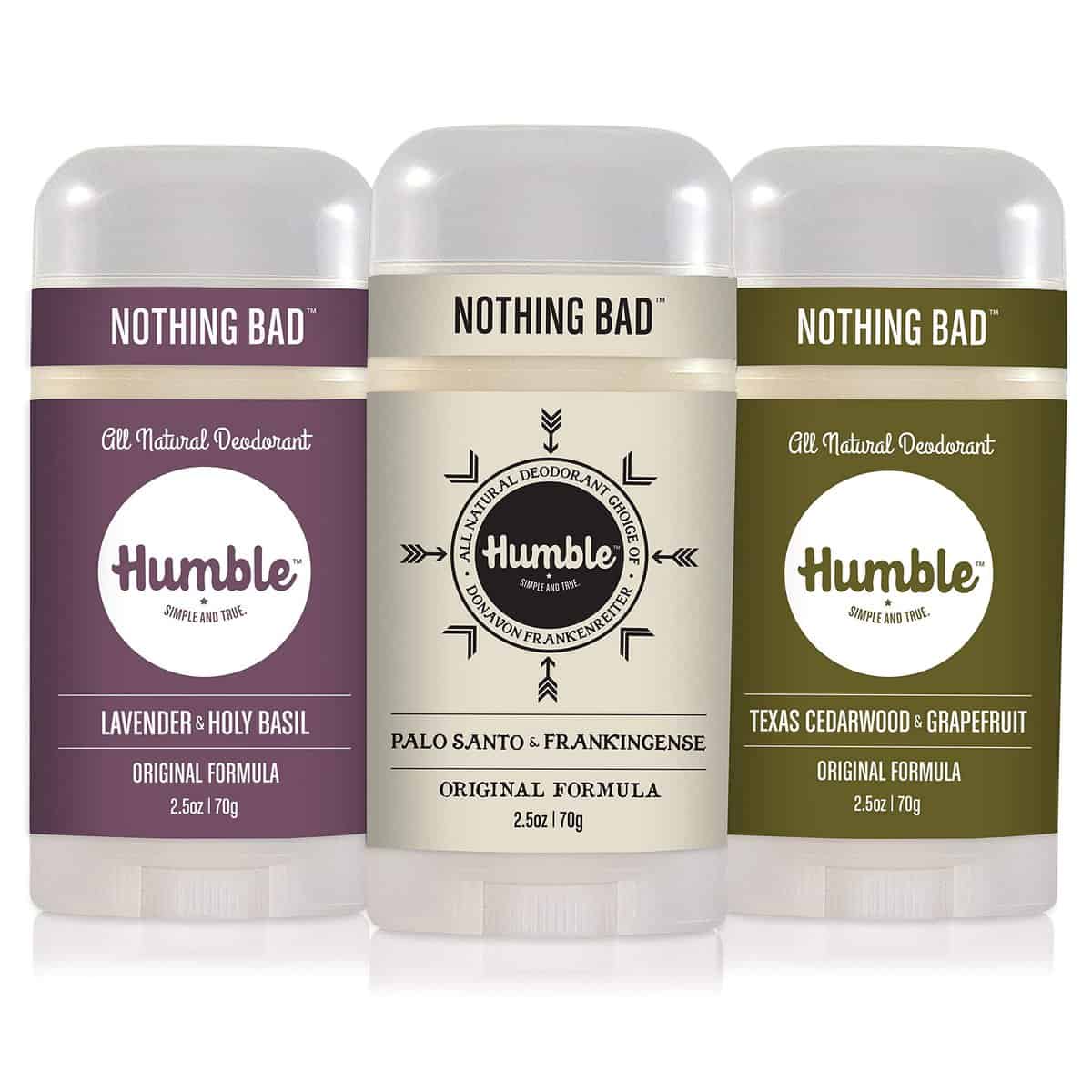
Humble is a natural skincare brand who makes a few different personal care products, including natural deodorant sticks that are scented with essential oils.
Features: the deodorant containers are made from recycled plastic (75% PCR). Rated a 1 on the EWG skin deep database. Cruelty free.
Size: 2.5 ounces or 70 grams
Price: $13.99 USD
Pros:
- Comes in many different scent options. I haven't had a chance to smell all of them but of the ones I have tried I really liked the Mountain Lavender and Rosemary and Mint.
- I found that this deodorant works quite well.
- It's made with just 4 ingredients which is pretty impressive.
Cons:
- Comes in plastic packaging.
- Does contain baking soda so some people have found it irritating.
- It can leave stains on white clothing.
Christopher's Organics Deodorant
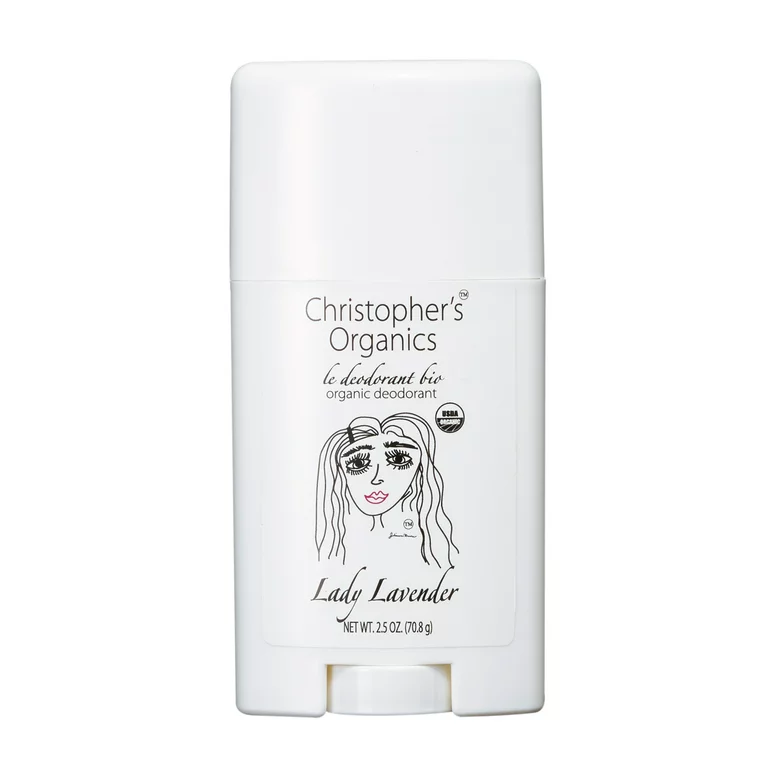
Christopher's Organics deodorants are natural deodorants made with all organic ingredients. They use minimal ingredients and only use essential oils to scent their deodorant.
Features: USDA organic. EWG verified. Cruelty Free. Gluten Free. Fair Trade.
Size: 2.5 ounces
Price: $12.95 USD
Pros:
- Comes in a variety of scent options. My favourites are Lady Lavender and Mr. and Mrs. Peppermint.
- I really love the cute labels on these deodorants.
- This is one of the most affordable natural deodorants in this review.
- You can buy this deodorant at Walmart.
- It works really well and has many positive reviews online.
- This is the only deodorant made with all organic ingredients in this review.
Cons:
- Comes in plastic packaging.
- I have not been able to find this deodorant in Canada where I live and can only buy it when I am visiting the US (so this is good news if you do live in the USA).
Peach Not Plastic Deodorant
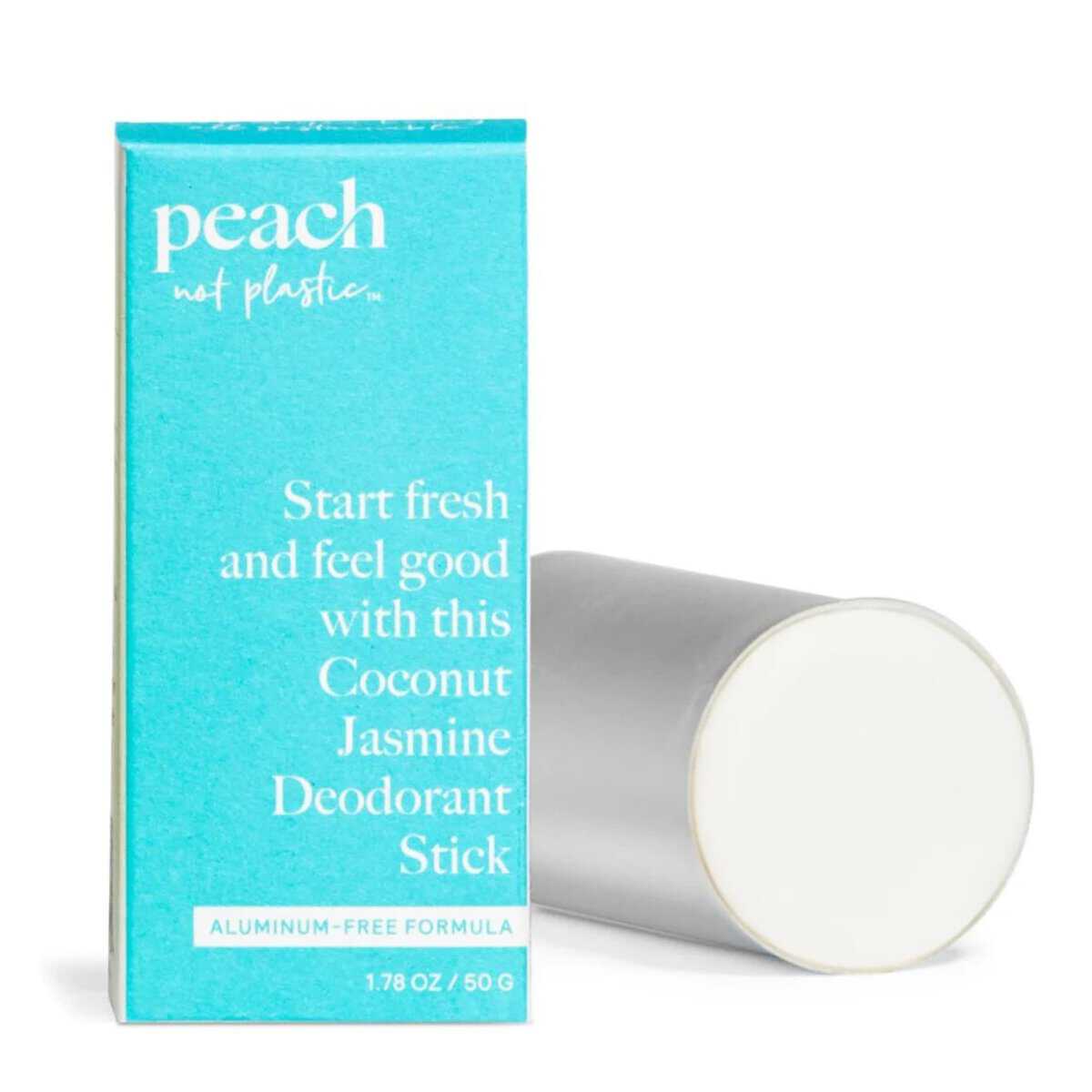
Peach Not Plastic Deodorant is the latest deodorant I came across and the most recent non-toxic deodorant I tested. The company is a certified B corporation so they have great values at their core and I love that this is another refillable deodorant so it's eco-friendly and sustainable.
Features: vegan and cruelty free. EWG verified. Scented with natural fragrances including essential oils and plant extracts.
Size: 1.78 ounces or 50 grams
Price: $10.79
Pros:
- This is one of the most affordable deodorants in this review!
- It's designed to be a unisex product.
- It's made without baking soda so it's great for those with sensitive skin.
- Uses sustainable packaging.
- I really like the smell of this deodorant and it worked very well for me.
Cons:
- It comes in an aluminium case so if you have metal allergies be aware of this.
- It is a very small deodorant so you will use it up faster than other brands but that does mean it is great for travelling.
Frequently asked questions:
Sadly no. Most of the Degree deodorants contain aluminum which are not safe to use when pregnant. And even though Degree has started making some aluminum free deodorants, they all still contain fragrances. And Degree doesn't disclose the ingredients used to make their fragrances, so you have no idea what is actually in them. For those reasons I wouldn't recommend using them during pregnancy (or anytime for that matter).
Dove's deodorants and antiperspirants are not safe for pregnancy. Some of their products contain aluminum which is a big no-no, and all of them contain fragrances (even the ones labelled as "fragrance free") which is also a big no-no when it comes to pregnancy.
Many regular deodorants are not safe to be used in pregnancy as they contain aluminum, fragrances, and other potentially harmful ingredients. You will want to stick to deodorant brands that are aluminum free, fragrance free, paraben free and phthalate free while you are pregnant or breast feeding.
No, the Dove aluminum free deodorant would not be considered safe for pregnancy or breast feeding as it contains fragrances, which can contain endocrine disruptors or hormone disruptors.
I hope this information was helpful! If you have any questions about the best pregnancy safe deodorant brands please reach out and I would be happy to chat.
Since you made it this far we are basically best friends so be sure to follow me on Instagram, Pinterest, TikTok and Facebook where I share even more recipes and healthy living tips!
Other health information you will like:
- Pregnancy safe body lotions
- Is there mercury in your mascara?
- Is mineral or chemical sunscreen better?
- How to choose safe cookware
- Are candles toxic?
Our expertise:
Dr. Erin Carter, MD, FRCPC, is a physician with board certifications in internal medicine and rheumatology. She is passionate about preventative healthcare including nutrition, environmental health and low toxicity living. She is also a self-trained chef and has been creating and publishing healthy recipes since 2015. Her recipes have been featured on many different websites and online publications.

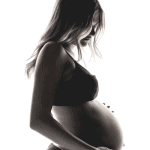
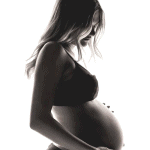
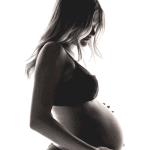
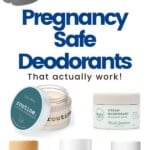
Leave a Reply